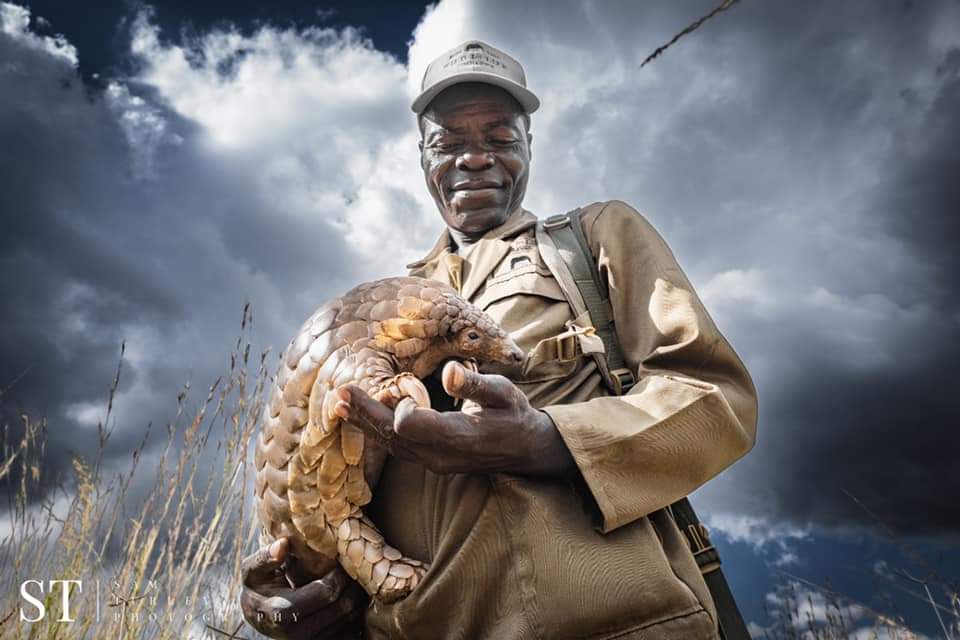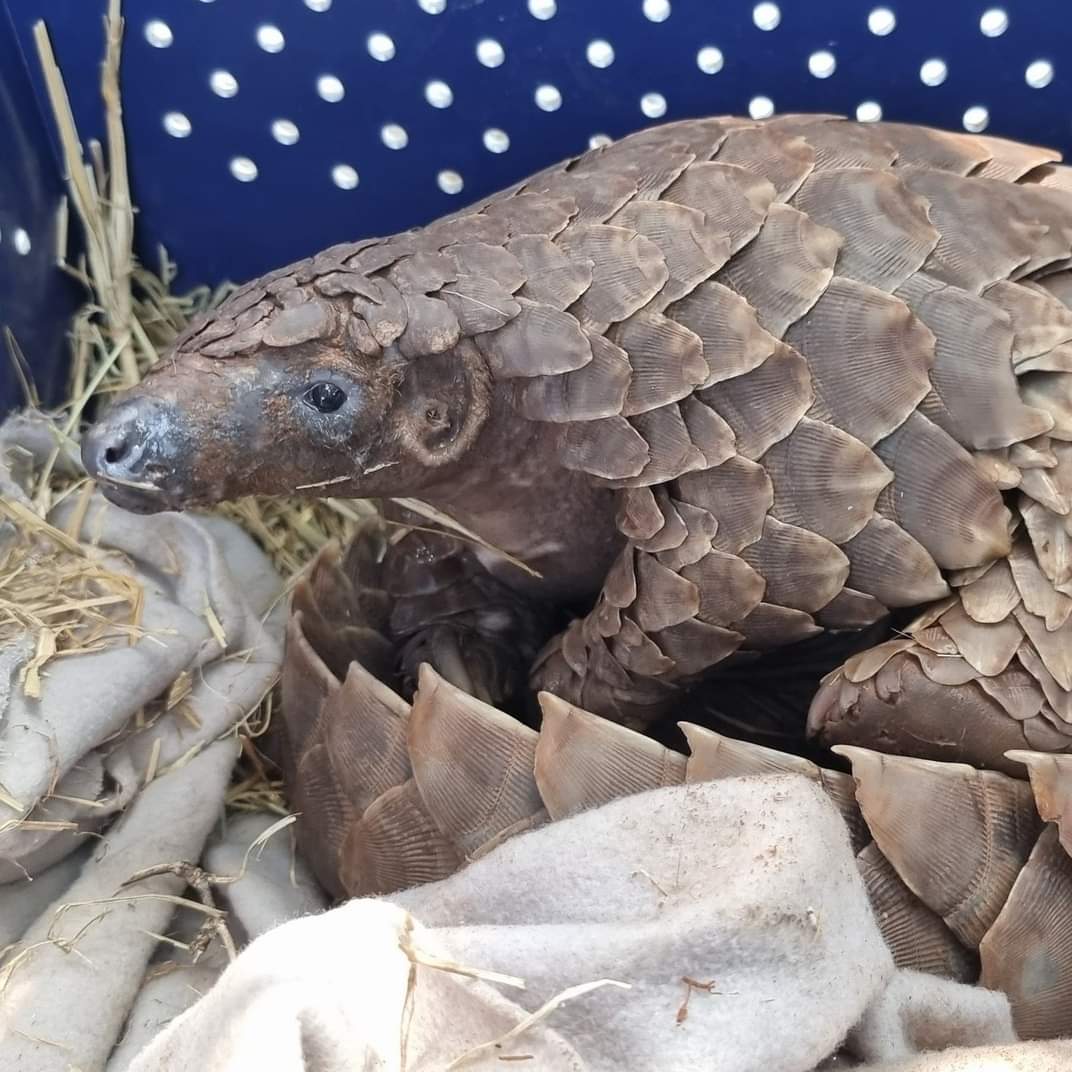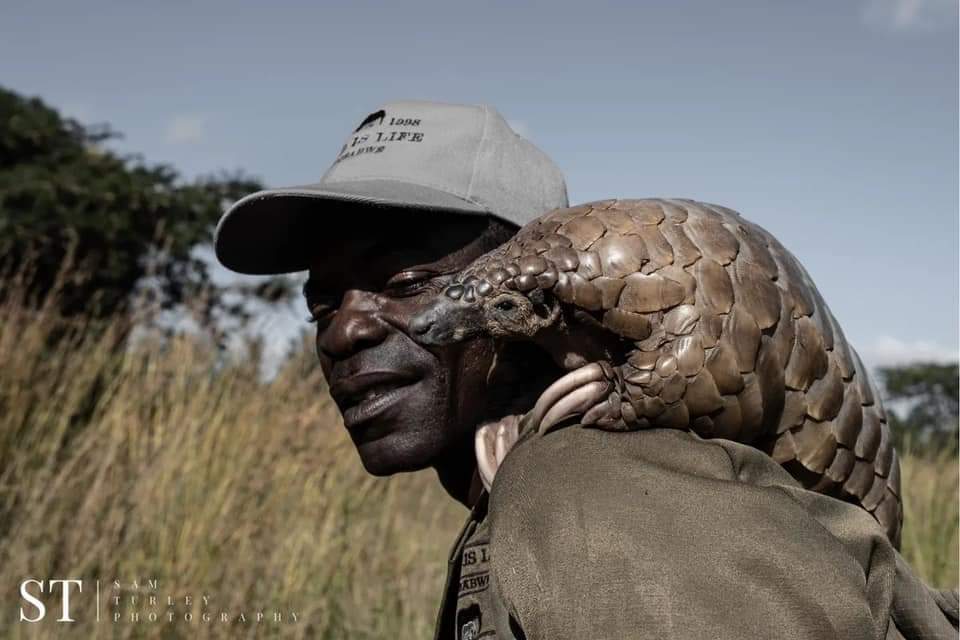BY NOKUTHABA DLAMINI
Zimbabwe on Saturday joined the rest of the globe in celebrating World Pangolin Day with conservationists taking to social media to showcase the work they are doing to protect the endangered animal.
There are growing concerns that pangolins are nearing extinction due to trafficking of the animals to Asian countries where they are believed to be used for medicinal purposes.
On Facebook, local conservation group Wild is Life Trust posted a picture of a pangolin named Marimba, which is being kept at the sanctuary after its mother was killed by poachers for its scales.

Mateo nursing orphaned pangolin Marimba (Pic by Wild is Life Trust)
“The scales are used in Chinese medicines where it is believed to have medicinal properties,” the organisation said.
“When Marimba’s mother was poached, she was simply too young to fend for herself and so the decision was made to take her to Wild is Life sanctuary in Zimbabwe where she met her full-time carer Mateo.
“Marimba and Mateo spend all day everyday together and their relationship is truly remarkable. Many attempts have been made to rewild Marimba but she always makes her way back to Mateo, who refers to her as his “last born child.”
The organisation said the relationship has elements of what all humans should strive to emulate in their relationship with pangolins “if we are to save them from extinction— one of trust, love, and compassion.”
Bhejane Trust, another organisation that oversees the well being of wild animals around the Hwange conservancy areas, said it was important for communities to protect pangolins.
“Pangolins are the most trafficked mammal in the world and severely threatened,” Bhejane Trust said.
“Let’s stand together to protect our creatures.”
The Gonarezhou Conservation Trust, which has been working with Tikki Hywood Foundation (THF) since 2015, said they had projects to rehabilitate and release pangolins recovered from the illegal wildlife trade.

A pangolin that was recently released to the bush at the Gonareshou National Park (Pic by Tikki Hywood Foundation)
“To date, the project has introduced a number of individuals and includes an important component of post-release monitoring to better understand the biology and behaviour of the species, the natural threats facing pangolin populations and also how these newly introduced individuals interact with the existing wild population,” the Trust said.
“THF has recorded natural births from these reintroduced individuals, all conceived in the wild of Gonarezhou, underlining the success of this project.”
In a statement to commemorate World Pangolin Day, the United Nations Environment Programme (UNEP) said pangolins are nocturnal animals “that feast on ants, are highly sought after for their supposed, but unproven, medicinal benefits, and as a culinary delicacy.”
UNEP said there was no scientific evidence that pangolins can be used to treat ailments.
“Pangolin scales are, however, made from keratin, the same substance as our hair and fingernails and have no medicinal properties at all,” the statement said.
UNEP said pangolins were the most trafficked wild animal in the world.
“In December 2019, the Xinhua news agency reported the seizure of over 10 tonnes of pangolin scales in the eastern Chinese city of Wenzhou, Zhejiang Province,”it added
“This was the largest seizure of pangolin scales by Chinese customs officials up to that point in 2019. The pangolins in question were reported to be African tree pangolins.”
World Pangolin Day is celebrated every third Saturday of February throughout the world to raise awareness about their vulnerability.

 Slider3 years ago
Slider3 years ago
 National4 years ago
National4 years ago
 Tourism and Environment4 years ago
Tourism and Environment4 years ago
 Opinion4 years ago
Opinion4 years ago
 Special reports4 years ago
Special reports4 years ago
 National4 years ago
National4 years ago
 National3 years ago
National3 years ago
 National3 years ago
National3 years ago






